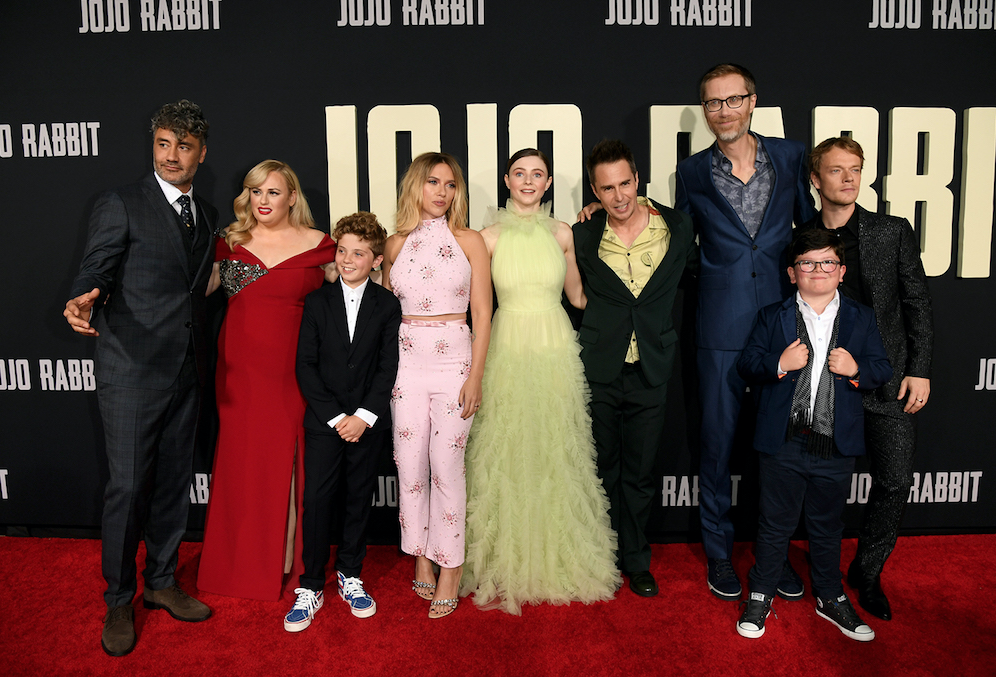Critique: ‘Jojo Rabbit,’ are Nazis really that entertaining?
November 10, 2019

While death may be a part of life, reminiscing on the horrors of the Holocaust does not have to happen time and time again.
Director Taika Waititi, known for “Thor: Ragnarok” (2017), released his latest project, “Jojo Rabbit,” Oct. 18.
Set in the latter part of World War II Germany, the movie, by nature, centers on the intersection of the beautiful and the gruesome. Ice-covered, cobbled roads lead to dead bodies; grassy countryside highways carry war-ravaged soldiers home; pastel German villa homes hide vulnerable Jewish stowaways.
And while filmed, framed and dressed up to be an eye-pleasing film, one cannot justify a storyline that both misses its mark and finds itself improperly retracing the lines of both overdone cinema and the history of the world.
What Waititi’s film, which grossed $4.9 million as of press time, failed to do, shockingly, is fully condemn Adolf Hitler—though it had every opportunity to do so. No matter how much we know about the Nazi leader and the ever-so-foul actions attached to his name, must those very notions be challenged in yet another Oscar-baiting endeavor?
The protagonist of the film is Jojo—a young boy who lives alone with his mother—and his imaginary sidekick who, from the first second of the film to one of the very last frames, is Hitler himself.
What is vexing about the film is the picture that is painted of Hitler: He has a quick wit, he can be buddy-buddy, even uplifting to the lonesome 10-year-old Jojo; he can turn the scene from intense and borderline tragedy to one where audience members can exhale and have a laugh.
Quite honestly, this portrayal is irresponsible. Decades pass and generations grow older, yet the sting and stain of genocide remains; nevertheless we find ourselves watching men in costumed SS apparel spending the entirety of the film repeating the heinous language of the supremacist group.
The humanization and familiarization of Hitler is bar none the most disconnected pop-culture move this critic has seen in some time. Its plot is grabby to the people who consume media that walks the line between insensitivity and fair play—however, this gleeful take on trauma dips into the former bearing no apology.
The audience is supposed to know, as it is hoped everyone does, that Nazis are vile—undoubtedly. And with this information in our pocket, we hold out until the last few minutes of the film when Hitler is finally put in his place—how unsavory it is, however, that we must wait nearly an hour and a half to get there.
I beg that critics do not attempt to liken the film to a lighthearted timepiece or something ingeniously taken out of history books. NPR called it “quirky” in an Oct. 17 review. Perchance googly-eyed critics have forgotten, World War II was not “quirky” and neither were its symptoms.
This is far from a tasteful recount of war times, if there even is such a thing—this is a nasty pounce on a topic that has been played out and milked for decades.
Hollywood should do better, however, I wonder, can they? Executives sat in meetings, planned budgets and hired actors only to show us once again, and this time unbelievably diluted, that Nazis are … bad.







